By Deaglán de Bréadún
Certainty is always a rare commodity in Irish politics but it has rarely been so scarce as it is these days. Like many other places, we don’t know for sure how things are going to pan out in the immediate future, to say nothing of the longer term.
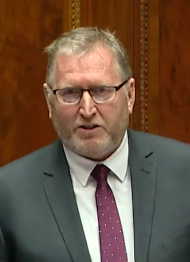
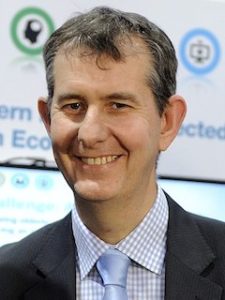
North of the border, there have been changes at the top of the two main parties who favour retaining the constitutional link with Britain. Edwin Poots has taken over from Arlene Foster as leader of the Democratic Unionist Party and she will also be replaced in the near future as First Minister in the Northern Ireland Executive by another DUP nominee, so far unnamed. The new leader of the Ulster Unionist Party is Doug Beattie, who has taken over from Steve Aiken.
Edwin Poots has a somewhat fundamentalist image but in practical politics he can be quite pragmatic. He won the DUP leadership by a narrow margin over Westminster MP, Sir Jeffrey Donaldson, which means his position at the top of the party cannot be regarded as very secure. In the last Northern Ireland election, the DUP came in with only one Assembly member more than Sinn Féin, so it is not out of the question that the republicans could be the biggest party after the next outing. Poots will need to come up with a strategy for warding off that possibility.
Meanwhile, Doug Beattie was elected leader of the UUP without a contest. It’s not the most attractive job in politics, since the UUP is no longer the biggest party in Northern Ireland. A former British Army office, Beattie is a good media performer, which should be a help in the challenging times ahead.
On the other side of the community divide, Sinn Féin has also been carrying out major changes of front-line personnel, in Derry and more recently South Down. A selection convention in that constituency decided that a sitting Member of the Legislative Assembly (MLA), Emma Rogan, would not be a candidate for the party in the next election to Stormont and that Councillor Cathy Mason will run instead. Meanwhile, the Alliance Party which takes what has been described as an “agnostic” stance on a United Ireland, has been gaining ground.
Meanwhile, one of the most-respected individuals in Ireland at the moment is Dr. Tony Holohan, who is Chief Medical Officer of the National Public Health Emergency Team. The good Doctor says that NPHET – generally referred to as “Nefet” – is “genuinely worried” at the number of Covid-19 cases of the type that was first encountered In India have now been detected here in Ireland.
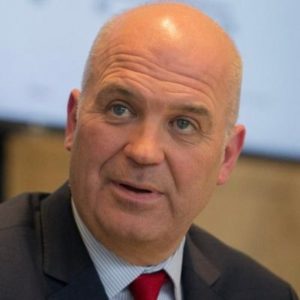
Having received my second dose of anti-Covid vaccine this week, I was feeling a new level of confidence that the coronavirus wouldn’t get me. But there’s no room for complacency because Dr. Holohan is quoted as saying that, “for the most part, the sky is blue but there is a black cloud on the horizon which is the Indian variant”.
As if that wasn’t enough to be concerned about, we have had the recent cyber attack on the IT systems of the health service in the Republic of Ireland. Ransomware is defined as “a type of malicious software designed to prevent access to a computer system until a sum of money is paid over”.
Ireland’s Department of Health and the Health Service Executive (HSE) have both been subjected to attack in this way, by persons unknown. It has led to a substantial number of cancellations of outpatient services. A senior HSE advisor described the episode as “a major disaster” and the Government has warned that “These criminal groups also habitually release stolen information as a means of pressurising organisations into paying a ransom.”
Irish security authorities suspect that the cyber attack has been organised by a group called “Wizard Spider” who are based at or close to the city of St. Petersbug in Russia. The Russian Ambassador to Ireland, Yuri Filatov said his government has offered to assist the Irish administration in a joint investigation of the episode. Speaking on RTE Radio’s “Drivetime” show he said this kind of activity, whether it originated in Russia or elsewhere – was illegal and the perpetrators should be brought to justice.
In a curious development, a decryption key has been supplied to the Irish authorities by the gang behind the cyber attack. This might make the stolen health data readable once again, i.e., in its unencrypted form. But the criminals will still have access to the confidential data themselves which could be used for illegal purposes such as blackmail or extortion. Ireland’s Minster for Health Stephen Donnelly has said that no ransom was paid to obtain the decryption key.
On the international stage, Irish anti-nuclear activist Adi Roche from Clonmel, County Tipperary, has been awarded, virtually, the highest honour of the Belarusian Orthodox Church. This is in recognition of her work, along with other Irish volunteers, on behalf of those affected by the Chernobyl nuclear disaster of 1986. As chief executive of Chernobyl Children International (CCI) she was presented with the medal of St Kirill Turovskiy by Bishop Veniamin. The award was made at a ceremony in a new chapel named after St Patrick, Ireland’s patron saint, which has been opened at Vesnova in Belarus to honour the work of Irish volunteers for the Chernobyl victims.
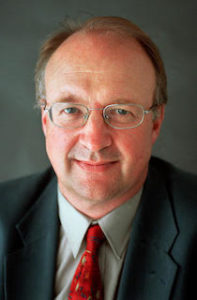
Deaglán de Bréadún is a freelance journalist and author based in Dublin. He is a columnist with The Irish News and his books include ‘The Far Side of Revenge: Making Peace in Northern Ireland’ and ‘Power Play: The Rise of Modern Sinn Féin’ as well as three books in Irish. His reporting on the Good Friday Agreement negotiations and their aftermath for The Irish Times won the Northern Ireland IPR/BT award for Daily News Journalist of the Year. Deaglán may be reached at Ddebre1@aol.com

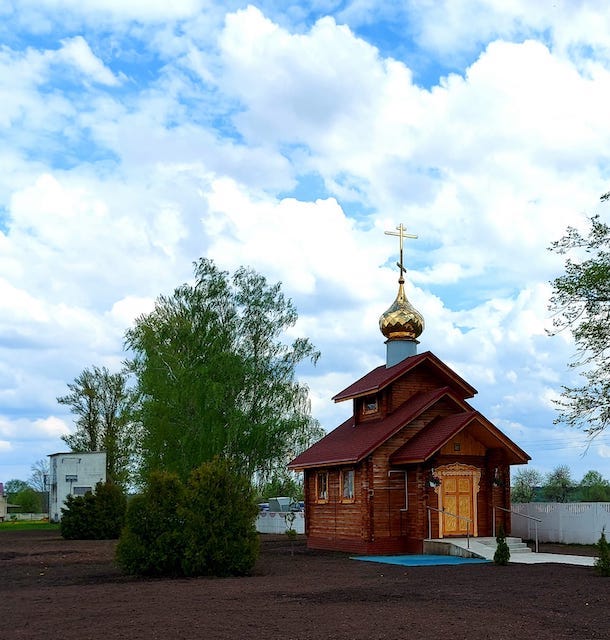







Leave a Reply